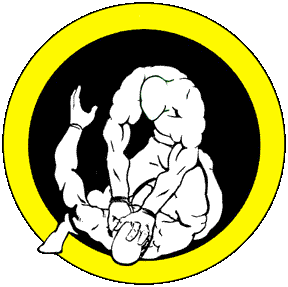Floyd Mayweather Jr strikes a blow for greatness
Posted on | September 23, 2009 | 1 Comment

CLICK HERE FOR ORIGINAL ARTICLE
Matthew Syed, Sports Journalist of the Year
Mayweather RingThere were moments during Floyd Mayweather Jr’s victorious comeback to the ring on Saturday night when Juan Manuel Márquez, his considerable Mexican opponent, seemed part of the act. That is what happens when there is a gaping chasm in ability between athletes: sport becomes choreography.
Mayweather eluded the fistic assaults of his opponent like a man with foreknowledge of his opponent’s intentions; landed his own with the effortlessness of someone shooting fish in a barrel. But this was no act of collusion. It was, instead, a mesmerising and barely precedented demonstration of genius by a boxer whose claims to greatness are now beyond sensible dispute.
Before Muhammad Ali defeated Cleveland Williams in a heavyweight championship bout in Houston, Texas, in 1966, sections of the boxing establishment continued to query the young champion’s ability. He held his fists too low, it was said, and packed precious little power into his punches. By the end of the contest opinions had swung 180 degrees, not because of an assertion of strength, but of omniscience.
During the seven or so minutes the bout lasted, the champion connected with 100 lightning punches and was hit by three. The boyish face was unmarked and but for a veneer of perspiration moistening his perfectly proportioned 6ft 3in frame, Ali might have spent the evening on his veranda reclining in an easy chair. Williams, by contrast, looked like he had been in a traffic accident.
Charley Powell, who a few years earlier had faced the man known as Cassius Clay at the time, said of his hand speed: “When he first hit me I thought to myself, ‘I can take two of those to get in one of my own.’ But in a little while, I found out I was getting dizzier and dizzier every time he hit me, and he hurt. Clay throws punches so easily you don’t realise how much they shock you until it’s too late.”
Comparisons to Ali are perilously easy when witnessing a contemporary boxer with a modicum of class, but in the case of Mayweather they are obligatory. Mayweather did not react to punches on Saturday night; rather he swayed and sashayed with them in harmony. He was under the challenger’s skin, in his face and in his mind: had Márquez had an itch behind his ear, Mayweather could have scratched it before his adversary moved a muscle.
One of the central ironies of watching a boxer such as Mayweather is the realisation that, if he faced the majority of his challengers in a dark alley, he would have his head ripped off. He is not a man who exudes strength or brute power. Only under the Queensberry Rules, enforced by a boxing establishment that continues to regard him with a combination of fascination and fear, can Mayweather dismantle his opponents like a child removing the wings of a butterfly.
The scoring of the judges spoke of an evening of forensic precision. But perhaps the greatest tribute to the American is that many of those at ringside felt that these one-sided interpretations failed to do justice to the scope of his dominance. Here is Ron Lewis, the boxing correspondent of this parish: “One judge gave Márquez two rounds, one gave him a round, but those must have been pity votes. Márquez did not appear to win even a minute of a round.”
Mayweather’s assessment of his performance was rather less gushing, a tribute, perhaps, to his taste for iconoclasm. “I got the cobwebs off of me and I think [in] the next fight I will be a lot sharper,” he said. “I don’t rate this as one of my best fights. I think I could have done a lot better. I have been off for a couple of years. I just want to push myself to the limit. Even when I fought Ricky Hatton, I thought I could have done better. I want to be perfect.”
Perfection is, of course, a worthy target even if it is an elusive concept when applied to sport. It is a notion that has intrigued me since I first entered the dilapidated wooden shack that masqueraded as my earliest table tennis club. Pinned upon the crumbling wall that faced the entrance was an old Snoopy cartoon poster that proclaimed “Practice makes Perfect”.
I used to gaze at it, pondering its alluring promise that if only I grafted for long enough I would reach a place that transcended the carping of coaches; where training would have no meaning because nothing could be improved upon; a place inhabited by the gods themselves.
The poster excited by turns inspiration and demoralisation. Inspiration at the thought of the prize it promised; demoralisation as I came to realise that the path towards it was asymptotic and that however far I travelled along it I would never reach its destination. Only when witnessing truly great sporting practitioners – such as Mayweather on Saturday night – have I been able to glimpse the meaning of perfection as it applies to sport.
What is now certain is that Mayweather must be regarded in the first rank of boxers, up there with the two Sugar Rays (Robinson and Leonard), Ali, Willie Pep and Roberto Duran. He has not been defeated in 40 bouts and has handed his past two opponents – one of them was Hatton – boxing lessons of a revelatory kind. Few men have had such an intuitive understanding of the complex geometry of the ring and fewer still the willingness to explore its dimensions with such finesse.
The challenges never end for a man of Mayweather’s abilities, but one hopes that he will avoid the pitfalls of his come-backing predecessors by retiring for good after he has confronted the one man with the genuine ability to plant obstacles in his path.
Manny Pacquiao, the Filipino multiweight champion, boxes Miguel Cotto in the same Las Vegas ring on November 14, making a showdown with Mayweather a mouthwatering possibility next spring.
“People say Pacquiao is No 1,” Mayweather said. “I don’t have to rate myself [because] I know what I can do. Pound-for-pound is an opinion. I was a professional for 11 years and I was a world champion for ten years. I went away for two years, came back, I fought the No 2 fighter. I didn’t rate him, [the press] did. Everybody knows I don’t have to duck and dodge anyone.”
Tags: Boxing > Floyd Mayweather > Jr. > Juan Manuel Marquez > Matthew Syed



